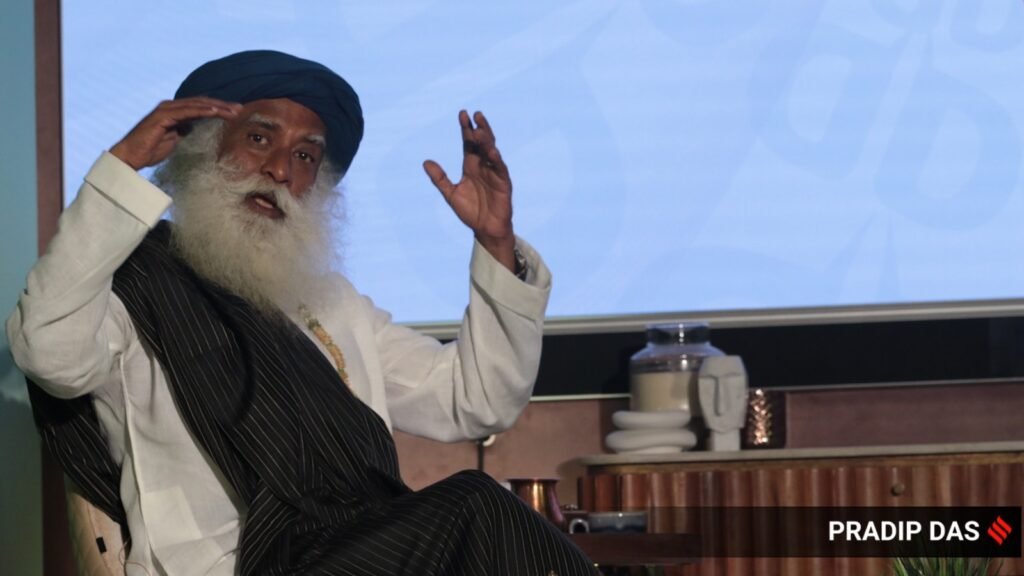Spiritual leader Jaggi Vasudev, popularly called Sadhguru, who is currently recovering from a brain surgery, once spoke about his morning diet in detail. Sharing what is on his plate, the 67-year-old said, “There will usually be pomegranate. If I am going to be very physically active, like I am going to play golf or walk, since I don’t drive cars, then maybe I will have to have carbs like idli, chapati, or rice. Any of these things. But if I am just going to do more mental activity, and physically not moving around too much, like I am sitting, I will drink a glass of liquid millet porridge, and stuff like that, which you can drink like coffee.”
He also revealed what he has on an empty stomach. “There are freshly ground small neem leaf balls, turmeric balls, which, according to him, are a ‘miracle to your life’. There is sprouted methi or fenugreek, which is very important for cellular cleansing; soaked groundnuts, which have been soaked for 6-8 hours. Soaking is very important. This is high-quality protein because these are organically grown groundnuts,” Sadhguru told CurlyTales in 2023.
During the interview, he also spoke about consuming one meal a day and observing extended fasting periods.
Taking a cue from his revelation, let’s understand what happens when you start your mornings according to the day’s activities.
These practices — including consuming one meal a day, extended fasting intervals, and the use of neem and turmeric balls — reflect principles rooted in traditional yogic and Ayurvedic wisdom, said Kanikka Malhotra, consultant dietician and certified diabetes educator.
 What happens when you have neem every day? (Photo: Getty Images/Thinkstock)
What happens when you have neem every day? (Photo: Getty Images/Thinkstock)
These habits can foster mindful eating, caloric moderation, and metabolic flexibility, all of which are supported by emerging research on intermittent fasting and plant-based health benefits. “However, it is essential to recognise the nuances and potential drawbacks when applied to modern lifestyles,” said Malhotra.
What to note?
According to Malhotra, for physically active or younger individuals, one meal daily may lead to insufficient caloric and protein intake, risking loss of muscle mass, fatigue, or nutritional deficiencies, particularly if meals are not well-balanced.
Story continues below this ad
“While fasting can enhance cellular health and digestion, prolonged hunger can impair focus, mood, and performance for those with demanding schedules or medical conditions. Sadhguru’s ritual of neem and turmeric may provide anti-inflammatory and antimicrobial benefits. Still, one should also be considerate that overuse can irritate the gut or interact with medications,” said Malhotra.
In today’s fast-paced world, such restrictive routines may not suit everyone, remarked Malhotra. “Individualisation, regular nutritional assessment, and careful meal planning are key for safely implementing aspects of these traditions while meeting personal health needs and modern daily demands,” said Malhotra.
DISCLAIMER: This article is based on information from the public domain and/or the experts we spoke to. Always consult your health practitioner before starting any routine.

